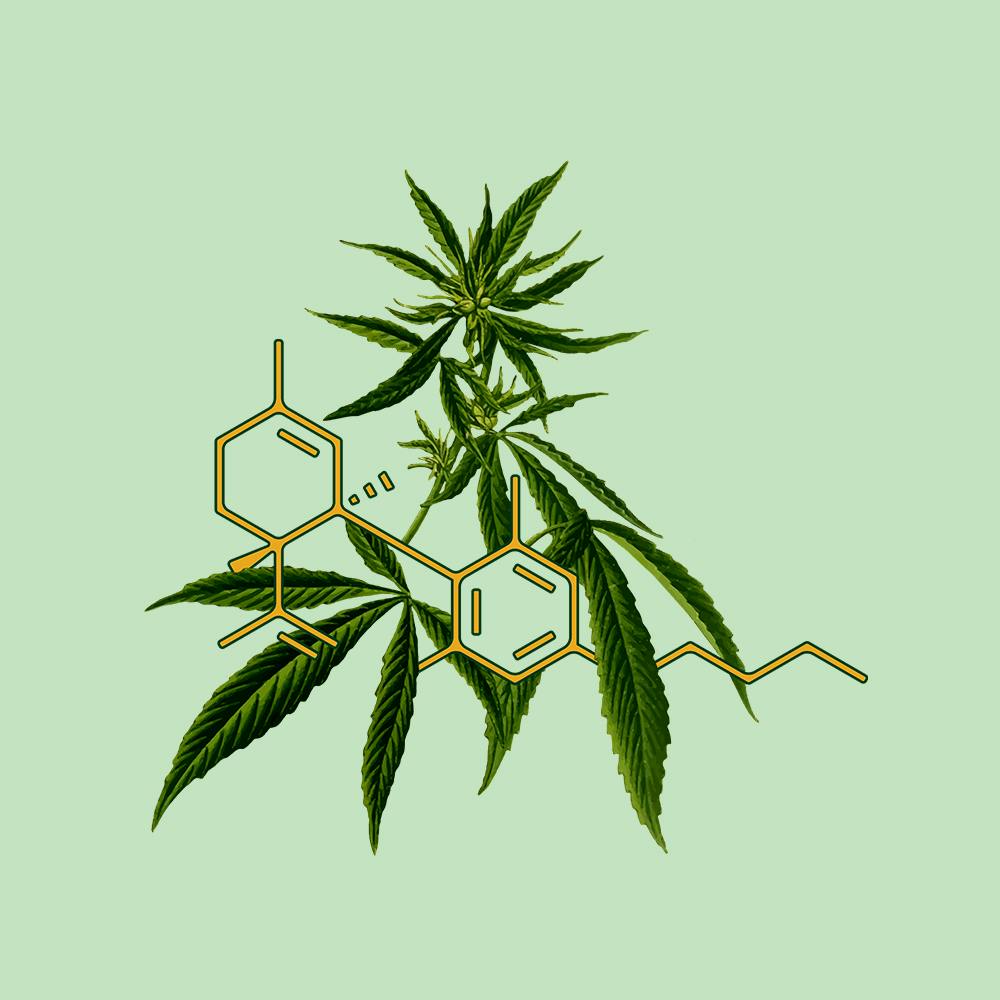Illustrated by Erin Rommel
Cannabidiol (CBD) has become the remedy du jour. It’s touted as a potential treatment for ailments like anxiety, nausea, sleep disorders and chronic pain – all common symptoms during pregnancy and early motherhood. But is it safe to take CBD while you’re pregnant or breastfeeding?
Given its popularity, it’s no surprise if pregnant and breastfeeding women are curious about CBD’s potential benefits. Unfortunately, there is no conclusive evidence that says whether CBD is safe or not during pregnancy – whether ingested or applied topically.
The Food and Drug Administration (FDA) strongly advises against the use of CBD in any form during pregnancy or while breastfeeding, not because CBD has been shown to be unsafe, but because we don’t know whether it’s safe if you’re expecting. The fear lies within the unknown.
Is CBD safe when you’re pregnant?
The short answer is… we don’t know. The science behind cannabinoids like CBD is still new, so researchers are still piecing things together.
At the time of writing, there is no conclusive research on how CBD may impact growing foetuses or newborns. According to the FDA, however, this doesn’t mean CBD gets the all clear, and there are a handful of potential risks when pregnant or breastfeeding women use cannabis. Even the lowest-dose products aren't considered safe during pregnancy.
Existing research has found that THC (CBD’s naughty cousin) can cross the placenta, as well as appear in breast milk, and affect foetal development. It can also increase the risk of premature birth or stillbirth, the FDA warns.
There is no published research on the effect of CBD in pregnant humans, but in animal studies, high doses (the equivalent of 3000 mg for a 60 kg woman) of CBD in pregnant animals were shown to impair the reproductive system in male foetuses.
Another issue is the lack of regulations in the CBD industry. The FDA also suspects many CBD products could be contaminated with pesticides, bacteria, fungus, and heavy metals, all which can harm the foetus or baby. Side note: this is why Daye only uses medical grade, lab-tested CBD!
Can I use CBD while breastfeeding?
Like with many substances, experts worry that CBD may be passed onto a newborn baby via the mother’s breast milk.
A study published in the journal Obstetrics and Gynecology looked at samples of breast milk from eight test subjects who regularly used cannabis and found that breastfed babies ingested an estimated 2.5% of the dose of THC.
The researchers didn't take blood samples from the infants to see if they had THC in their bodies, but their results were enough to suggest that traces of THC can be passed onto a baby.
Admittedly, most of the existing data surrounds maternal use of THC (which is not CBD), but researchers believe CBD could carry the same risks. In fact, research published in the journal Pediatrics found that low levels of both THC and CBD may be found in breast milk for up to six days after smoking cannabis or eating an edible.
To limit potential harm to the infant, breastfeeding mothers are advised not to use cannabinoids in any form, including CBD, while breastfeeding.
It’s also worth noting that to be legally sold in the UK, CBD products must not contain more than 0.2% THC. So most CBD products sold in the UK may still contain trace amounts of THC, and be potentially dangerous during pregnancy and breastfeeding.
Does that mean CBD isn’t safe?
Not necessarily, because CBD has a very high safety profile. Cannabinoids are by no means the only substance pregnant and breastfeeding women should avoid.
Everyday things like caffeine, soft cheese and skincare containing retinol are also no-gos when pregnant, but that doesn’t mean they’re not otherwise safe. It’s simply due to the fact that foetuses and newborn babies are much more vulnerable than adult humans.
Pregnant women are excluded from clinical trials for safety, liability and ethical reasons. We may not have any data on CBD in pregnancy and breastfeeding for a while, so in the meantime it’s best to err on the side of caution and give CBD a miss if you’re expecting, or are still breastfeeding.
If you’re considering taking CBD while pregnant or breastfeeding, consult your GP, OB GYN or midwife, just as you would with any other medication.






